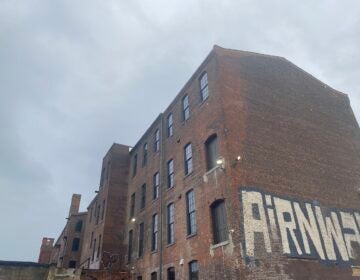Council should approve zoning code redo
Dec. 13, 2006
Philadelphia Inquirer
Philadelphia’s Zoning Code
Editorial | A roadblock to growthNothing about Philadelphia’s Byzantine, bloated zoning code is as simple as making the decision that it’s finally time to fix it.
Those repairs – actually, a rewrite – should yield a set of rules that encourage the growth that’s inevitable, and enviable. At the same time, they should safeguard the character of the city’s neighborhoods.
New rules would replace the jumble of outdated regulations that require near-constant tinkering to make way for projects. It’s a status quo that leads to patchwork development, encourages dubious deal-making and undercuts strategic planning.
At a hearing last week, developers, planners and neighborhood leaders alike ripped the current zoning code, the oldest zoning code of any major city. So there’s clearly a shared appetite for creating a more rational set of rules for growth and change.
That isn’t the work of one day, but tomorrow is the day to make a start on this long, deliberative civic process. To do that, City Council approval is needed on several measures that would get the zoning overhaul rolling.
The key measure, proposed by Council members Frank DiCicco and Jim Kenney, would put a City Charter change before voters this spring. The charter amendment would call for creating a 29-member Zoning Code Commission chaired by the director of the city Planning Commission. The panel’s charge would be to draft a new zoning map. Council and the Planning Commission would have to sign off on any new zoning rules.
A companion measure would raise standards for membership on the Planning Commission and Zoning Board of Adjustment, which considers zoning appeals. That’s also worth putting before voters.
While there will be ample time to debate this charter change, one concern already being aired by civic activists is whether well-funded lobbying would distort the process so that the new rules tilt toward developers, and against the interests of neighborhoods.
In a city with Philadelphia’s history of closed-door deal-making, no one can deny that’s a potential risk. But the status quo, with its outmoded code that constantly clashes with reality, is precisely what sets up opportunities for unholy deals between pols and developers. Some civic organizations pride themselves on how well they’ve learned to play that ad hoc game, extracting “community benefit agreements” from eager developers.
In the end, though, that’s a losing game for neighborhoods, as well as a deterrent to top-quality developers. Better to have rules that are clear, realistic and consistent, backed up by review processes that are fair and transparent.
Civic concerns should also be calmed by the idea that the zoning commission’s diverse makeup would include at least 10 Council-appointed “community leaders” as members.
It would be foolish, in fact, to tip the panel’s membership toward any particular agenda. Neither “bring on the bulldozers” nor “not in my backyard, ever” are good mottos for a historic, beautiful city that needs to figure out how to grow.
WHYY is your source for fact-based, in-depth journalism and information. As a nonprofit organization, we rely on financial support from readers like you. Please give today.






